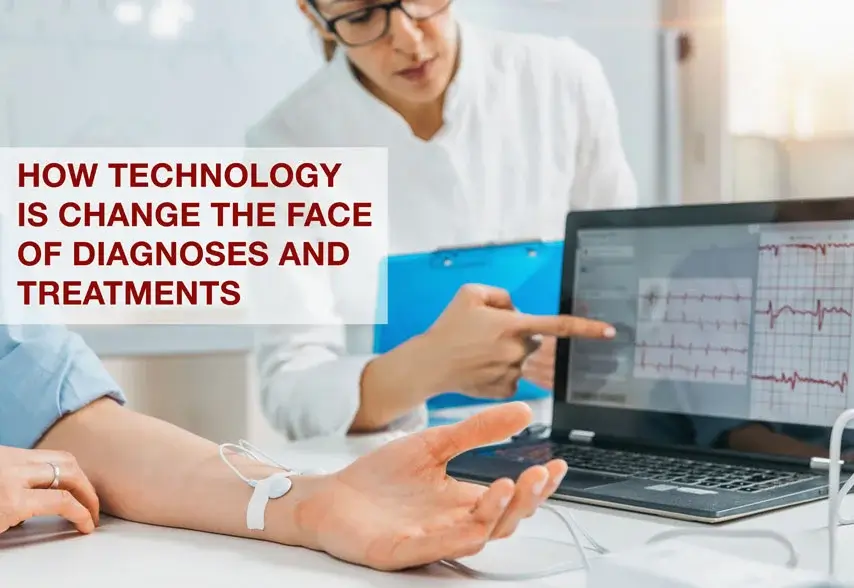
Technology is evolving at a faster pace than ever before and affecting every part of our lives, including medicine. In the recent past, it has brought a number of remarkable changes to the health industry so much so that the healthcare field you see today is not what it was just five years ago. Multiple medical issues like heart failure, diabetes and even cancer are these days researched and solved with the help of remarkable new technologies.
Also, there have been huge breakthroughs in research, data collection, diagnosis, treatments, and medical devices which have had a huge impact in the healthcare industry. This advancement was largely possible due to technology and innovative digital solutions that are introduced almost on a daily basis.
Healthcare Information Technology Market in India
Healthcare technology solutions have modernized medical care by reducing the high cost of treatment and helping patients avoid medical tests that are not necessary. For example, performing insulin and other tests at home can be quicker and more cost-effective than visiting a hospital for the same. In other words, technology has solved major problems that the world of medicine faces.
In India, The Indian biotechnology industry in 2019 was valued at US $64 billion and is expected to reach US$ 150 billion by 2025.1 Thanks to technology, now better and more accessible treatment is available for a wide variety of diseases; more efficient care is provided for the sick and better health care and disease control methods are also in place.
Technology Revolutionizing Diagnosis and Treatment
We know that effective treatment of critical illnesses like cancer requires continuous tracking of the patient's progress over days, weeks, months and years. Previously, it was not possible to monitor these changes in the patients' body. But technology has made it possible for doctors to store medical images and records of patients electronically, which can be compared to previous images for more effective treatment. So, let’s look at how technology is revolutionizing diagnosis and treatment of diseases.
Suggested Read: Evolution and Future of Cancer Treatments
3D Printing
3D printing, also known as additive manufacturing, has transformed the healthcare industry in several different ways. This technology is being used to produce patient-specific organ replicas that can help surgeons in practicing before they perform actual surgery. Preparing a replica, which can be used both prior to and during surgery, through this technique speeds up surgery procedures and minimizes trauma for patients. Also, 3D printing allows the patient to design a prosthetic that corresponds directly to his needs.
Big Data
Application of big data in healthcare won’t only save lives but money also. A huge amount of data, generated from patient records, diagnosis, treatments and medical research, is available to the healthcare industry, which if analyzed can offer significant insights in the field of medicine. It helps in assessing methods and treatments faster than ever before. For example, doctors can make more accurate diagnoses and recommend better treatments by studying patient treatment histories. This data can also be used to predict recurrences of diseases.
Artificial Intelligence
A study published in September in the Lancet has found that artificial intelligence (AI) is just as good at diagnosing a disease based on medical imaging as healthcare professionals. Over 80 per cent of all healthcare data comes from medical imaging technology and the majority of it remains unanalyzed. If AI, with all its advancements, is applied into it, it could reshape medical diagnostics. Not only diagnosis, AI can also help in finding possible treatments of various diseases.
Virtual Healthcare
Virtual healthcare technology is the distribution of health-related assistance and information through technology and digital solutions. It allows patients to share important data related to their problems with doctors and monitor their own health at home. This also includes doctors and physicians sharing their knowledge and expertise at video conferences or by using mobile applications. This remote monitoring allows patients to reduce the time and cost of recurring visits to the hospital.
Mobile Apps
In the recent past, there has been a rise in health technology applications that have changed the way patients and doctors interact. Now, tracking sleep patterns, counting calories, researching diagnosis and treatment options, and monitoring heart rate is possible via smartphone apps. With this, people feel empowered with more medical knowledge and they can also have their say in medical decisions.
Technological growth in the healthcare sector offers excellent benefits, including better patient-care management, reducing risk factors, improving process efficiencies and decision making and, above all, predicting the future course of diagnosis and treatments.
However, with the improving technology the cost of medical treatment is also increasing. Hence it is better to get covered by Future Generali India Life Insurance policies like Future Generali Cancer Protect Plan and Future Generali Heart and Health Insurance Plan that offer a lump sum pay-out when the insured is diagnosed with critical illnesses mentioned in the policy, so that you can avail world-class treatment without worrying about finances.
Reference:
1.https://www.ibef.org/industry/pharmaceutical-india.aspx


Comments